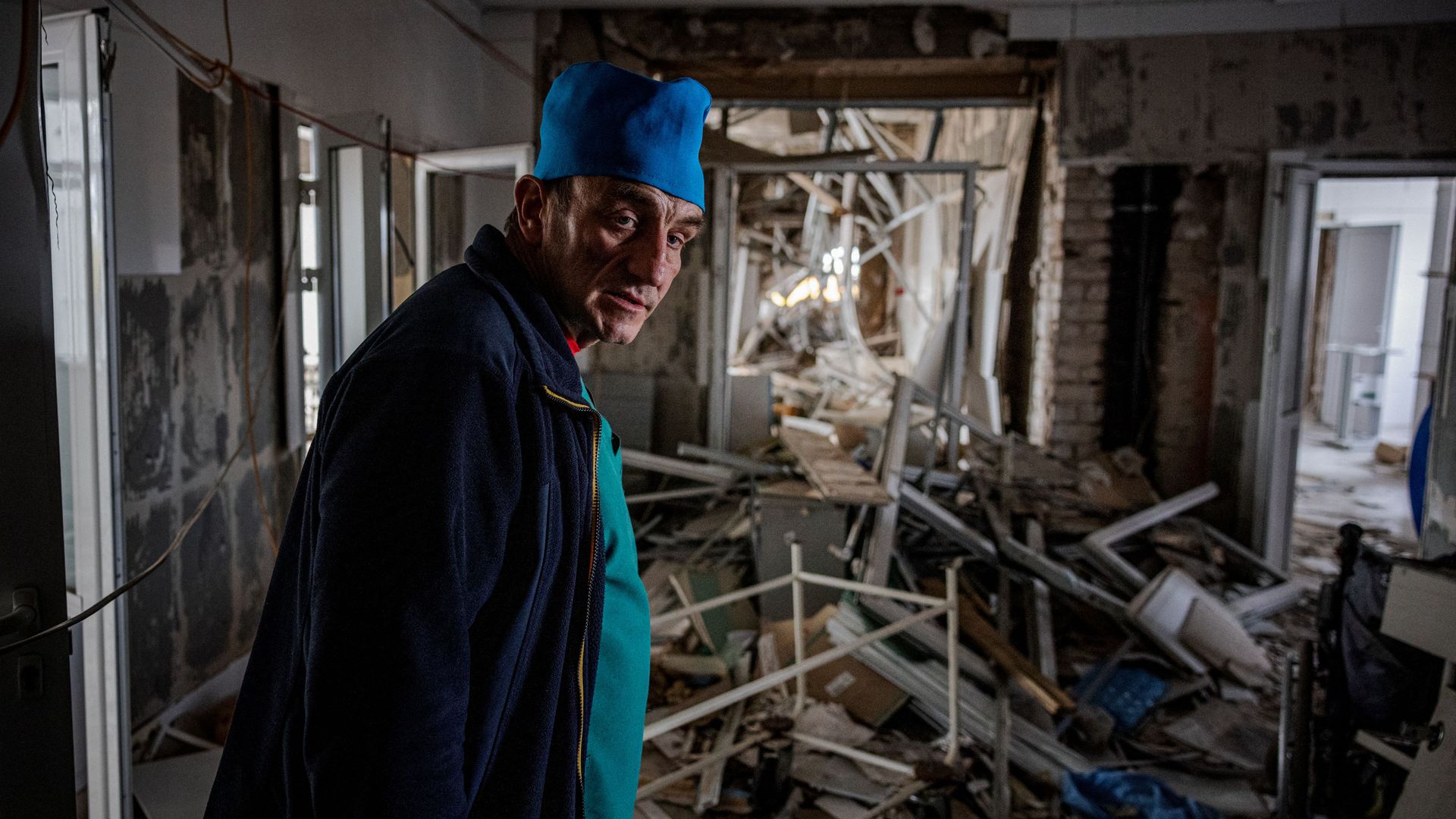| | | | | | | Presented By AHCA/NCAL | | | | Axios Vitals | | By Tina Reed · Feb 22, 2023 | | Happy Wednesday, Vitals readers. Today's newsletter is 998 words or a 4-minute read. Join Axios Pro Health Care Policy reporters Maya Goldman and Peter Sullivan tomorrow at 12:30pm ET for a virtual event examining the key health care issues up for debate in Congress this year. - Guests include Rep. Annie Kuster (D-N.H.) and Rep. Victoria Spartz (R-Ind.). Register here to attend.
| | | | | | 1 big thing: Hospital outpatient billing draws bipartisan heat |  | | | Illustration: Natalie Peeples/Axios | | | | Hospitals could be playing defense this year as bipartisan scrutiny builds in Congress over the way facilities charge more for outpatient services that can be done in less-expensive settings, like a private doctor's office, Axios' Arielle Dreher and Peter Sullivan report. Why it matters: So-called site-neutral payment reforms could save Medicare upward of $100 billion over a decade, according to various projections, and those with private health insurance could see savings, too. The catch: Medicare lets hospital-owned clinics be designated as outpatient departments and net a higher payment for certain services than if they were owned by clinicians or independent. - Critics say there's little evidence that the quality of care is higher and that, in many cases, physician practices were bought by hospitals and designated part of an outpatient department to take advantage of the rule.
Zoom out: Some states have tried to tackle the issue through transparency measures aimed at helping consumers understand when a hospital is charging a "facility fee" or otherwise adding costs at hospital-owned practices. - Both the Obama and Trump administrations tried to target reforms around site-neutral payments, including a CMS rule the Trump administration issued that implemented them for office visits.
- "It's very possible that some of this can be done through rulemaking or executive action since the Trump administration already did this and won in court," Loren Adler, associate director of the USC-Brookings Schaeffer Initiative for Health Policy, told Axios.
The other side: "The cost of care delivered in hospitals and health systems takes into account the unique benefits that only they provide to their communities," said Ashley Thompson, a senior vice president at the American Hospital Association. For more details on what members of Congress are thinking about hospitals and Medicare payments, subscribe to Axios Pro. Use code POLICY100 which gives you $100 off. |     | | | | | | 2. Destruction of Ukrainian health infrastructure |  | | | Yuri Kuznetsov, 52, stands in the destroyed surgery room in Izyum, Ukraine's hospital on Nov. 2, 2022. Photo: Dimitar Dilkoff/AFP via Getty Images | | | | 1 in 10 of Ukraine's hospitals has been damaged in attacks from Russia in the last year, according to a new report released Tuesday. The big picture: As the first anniversary of the start of the conflict approaches this week, the report raises awareness how ongoing attacks are hampering the ability to provide access to health care services, according to the joint report from eyeWitness to Atrocities, Insecurity Insight, the Media Initiative for Human Rights, Physicians for Human Rights, and the Ukrainian Healthcare Center. What they are saying: "Russia appears to be violating international humanitarian law by deliberately and indiscriminately targeting Ukraine's health care system as part of a broader attack on its civilian population and infrastructure," the authors of the report wrote. By the numbers: Between Feb. 24, 2022 and Dec. 31, 2022, there was an average of more than two attacks on health care each day with a total of 707 attacks on Ukraine's health care system, the report found. - That included 65 documented attacks on ambulances and 191 attacks on other parts of the country's health infrastructure, such as pharmacies, blood centers, dental clinics and research centers.
Read the rest. |     | | | | | | 3. Costs of delayed discharges add up for U.S. hospitals |  | | | Illustration: Sarah Grillo/Axios | | | | Delays in discharging patients are costing New York hospitals nearly $170 million over three months last year, Politico reported. Why it matters: While the data offered a snapshot from the Healthcare Association of New York State, it's evidence of a costly backlog problem for hospitals across the U.S. — often due to a lack of payment for the discharge setting or a lack of post-acute staffing. The details: The report looked at data from 52 hospitals in New York during the three-month period between April 1, 2022 to June 30, 2022. - The longest delays occurred among those kids, as well as individuals with intellectual or developmental disabilities or mental illness. The most frequent delays involved those 65 and older, the report found.
The big picture: Hospitals all over the country have been reporting concerns in recent weeks over discharge delays. - In Nebraska, the head of the Nebraska Hospital Association told KETV that facilities are reaching a crisis point with more than 220 patients waiting more than a week to be transferred for the fifth month in a row.
- A survey by the Minnesota Hospital Association found 95 hospitals reported patients received 14,622 more days of care than necessary in a single week in December, the Minneapolis Star-Tribune reported.
- Hospitals in Oregon — which report more than 400 patients are stuck in beds — are lobbying for legislation that would compensate them for patients who are unable to be discharged, per The Lund Report.
|     | | | | | | A message from AHCA/NCAL | | Long term care needs hiring help, not impossible mandates | | |  | | | | Nursing homes are working hard to recruit caregivers, but they can't find workers. The solution: We need investments in our long term care workforce — not unfunded staffing mandates — to offer better wages, build a pipeline of nurses and bolster staff retention. Learn more. | | | | | | 4. Data du jour: Biosimilar marketshare grows |  Data: Cardinal Health 2023 Biosimilars Report; Chart: Axios Visuals Biosimilars — or copycat competitors of biologic drugs — are starting to take hold in the U.S. as doctors become more comfortable with them, a report out today from the big drug distributor Cardinal Health shows. Why it matters: The promise of biologics, like generic drugs, is that the competition they infuse into the market will bring prices down. But that only works if insurers pay for them, doctors prescribe them and patients will take them. Details: A survey of more than 350 providers in several specialties asked about some of the most "disruptive biosimilars launched in the areas of immunology and ophthalmology." - It found a growing familiarity of the drugs among rheumatologists with 76% reporting being very familiar with the products, a 43% increase of the same time a year prior.
- The research also reports high familiarity among gastroenterologists (81%) compared to ophthalmologists (33%) and dermatologists (31%).
- 86% of all gastroenterologists surveyed felt comfortable prescribing the Humira biosimilar to patients.
What to watch: What happens with Humira, the world's top-selling drug, after a biosimilar was allowed to come on the market in the U.S. last month. |     | | | | | | 5. Catch up quick | | 🥤 Big Soda's alcohol drinks worry health experts. (New York Times) 💰 Cleanup workers got sick after the Deepwater Horizon oil spill. They want BP to pay. (KHN) 🍼 Enfamil recalls 145,000 cans of ProSobee baby formula for bacteria risk. (Axios) |     | | | | | | A message from AHCA/NCAL | | The domino effect of failing to support long term caregivers | | |  | | | | The long term care labor shortage has created bottlenecks in hospitals as patients wait for beds in nursing homes. What you need to know: A federal staffing mandate will worsen the strain by forcing nursing homes to limit their number of residents. We need solutions now. | | | | Editor's note: The top story in the Feb. 13 Vitals has been corrected to show Wegovy and Rybelsus were included in the 5 million prescriptions written for weight management in 2022, after Komodo Health updated the data they provided to us. Have a news tip? Just reply to this email. Did someone forward this email? Subscribe here. Thanks for reading, and thanks to senior editor Adriel Bettelheim and senior copy editor Bryan McBournie for the edits. |  | | Dive deeper into the future of health care | | | | | | Axios thanks our partners for supporting our newsletters.
Sponsorship has no influence on editorial content. Axios, 3100 Clarendon Blvd, Arlington VA 22201 | | | You received this email because you signed up for newsletters from Axios.
To stop receiving this newsletter, unsubscribe or manage your email preferences. | | | Was this email forwarded to you?
Sign up now to get Axios in your inbox. | | | | Follow Axios on social media:    | | | | | |








No comments:
Post a Comment